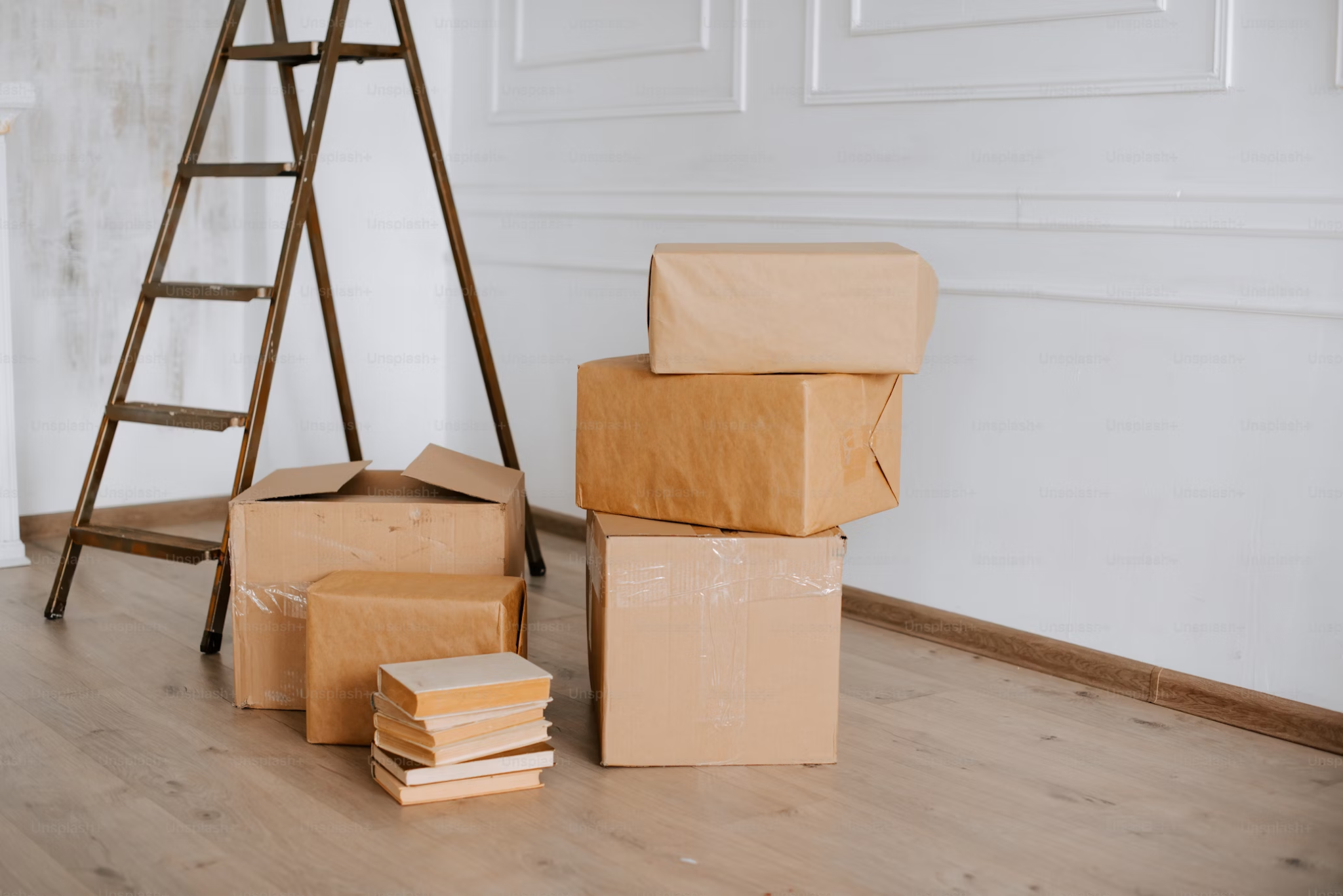Relocating to a new home can feel overwhelming, but starting early and having a clear plan makes it easier. By preparing ahead—like notifying service providers and gathering packing supplies—you can avoid last-minute stress.
Decluttering before packing also helps simplify the move and offers a fresh start. Using proper materials, like strong boxes and bubble wrap, ensures your belongings stay safe. With a little organization, moving can be smooth and stress-free.
Start Decluttering and Organizing Early
One of the most effective ways to ensure a smooth move is to start decluttering and organizing early. Reducing the number of items you need to move saves time, effort, and even money. Decluttering also provides an opportunity to let go of things you no longer need, making your new space feel more open and organized.
Begin by sorting your belongings into categories: keep, donate, and discard. This method helps you stay organized and makes the process less overwhelming. Items that you haven’t used in the past year are often good candidates for donation or disposal.
Consider whether large items, like a sofa for the living room, are worth moving or if it would be more practical to replace them after relocation. For example, you might consider exploring new options at Nova Furnishing to find modern, affordable replacements that match your new space.
Starting this process early gives you ample time to make thoughtful decisions about what to keep and what to let go of. It also allows you to find appropriate donation centers or arrange for bulk trash pick-up if needed. By decluttering and organizing in advance, you’ll be setting the stage for a much smoother and more efficient move.
Create a Realistic Timeline for Your Move
Creating a realistic timeline for your move is crucial for a stress-free moving experience. Ideally, you should begin preparations one to two months in advance. This timeline allows you to methodically tackle each task without feeling rushed, ensuring a smooth transition to your new home.
For local moves, follow this timeline:
- Five to seven weeks prior to moving day: Gather packing materials such as boxes, tape, and markers.
- Four to six weeks before moving: Downsize unnecessary items, including selling or donating belongings.
- Three weeks ahead: Start packing rarely used items like seasonal decorations and fine china.
- Two weeks before moving: Focus on packing essential kitchen items and identifying key belongings needed right away.
- One week prior: Finish packing, ensuring all boxes are labeled and properly sealed. Days before the move are crucial for staying organized.
International moves require even more lead time and meticulous planning. Besides the standard preparations, you will need to consider additional factors such as customs clearance,
Research Moving Services to Match Your Needs
Hiring professional movers can significantly simplify the moving process and save you valuable time. To ensure you choose the right moving company, start by assessing your specific moving needs. Determine whether you require local or long-distance services, as this will help narrow down suitable moving companies. If you want to make the process even easier, you may want to hire professional movers.
Local moving services focus on quick logistics, while long-distance moves involve more complex arrangements and may require international customs expertise. Specialty moving companies may offer tailored services for items such as pianos or artwork, which need careful handling. Reading reviews on platforms like Yelp and Google can provide insights into a moving company’s reliability and service quality.
When looking for trustworthy moving services, consider the following:
- Personal recommendations from friends and family can be a valuable resource.
- Obtain multiple quotes to compare prices and identify any hidden fees in the estimates.
- Verify that the moving company is licensed and insured to protect your belongings during transit.
If you’re relocating within Australia, you can conveniently hire Hobart furniture movers through Find a Mover to match with reputable professionals in your area.
Pack Strategically for Safety and Convenience

Packing strategically is essential for ensuring the safety of your belongings and making the unpacking process more convenient. Start by organizing your packing by room and label each box clearly with its contents and the room it belongs to. This approach will save you time and effort when you arrive at your new home.
When handling large furniture, such as wrapping a sofa for the living room securely, make sure to take care to use appropriate packing materials to prevent damage. Also, keep an essentials box with critical items to avoid searching through boxes upon arrival at the new location, using the essentials you need.
Packing smart and staying organized ensures that your belongings arrive safely and pack an essentials to make unpacking a breeze.
Understand Key Regulations and Logistics for Long-Distance Moves
Long-distance moves, especially international relocations, come with their own set of challenges and regulations. Understanding these key aspects can help ensure a stress-free moving day.
Customs clearance is a major concern. Research the prohibited items and documentation required for your destination country. Refer to DHL for International shipping FAQs for comprehensive guidelines.
You’ll also need to keep key documents—like passports, visas, and shipping paperwork—readily accessible. Consider moving insurance options to protect your belongings. Some movers provide coverage, but additional third-party insurance may offer greater peace of mind.
Being informed and prepared can help you avoid delays and unexpected issues during your relocation.
Stay Flexible and Keep Stress Levels in Check
Even with the best-laid plans, moving can sometimes present unexpected challenges. Staying flexible and maintaining a positive mindset is crucial for a stress-free moving experience. Setting realistic expectations and being prepared for possible delays can help you stay calm and focused, ensuring a free experience.
Remember that it’s okay to seek help when needed. Whether it’s asking friends or family for assistance or hiring professional movers, having support can make a big difference. Staying flexible and keeping stress levels in check allows you to navigate the moving process with greater ease and positivity.
Conclusion
In conclusion, a successful move hinges on early planning, strategic packing, and choosing the right professional support. By starting the process early, decluttering, and organizing your belongings, you can significantly reduce the stress associated with moving. Creating a realistic timeline and understanding the key regulations for long-distance moves are also essential steps.
Embrace the move as a new beginning and maintain a positive outlook. With careful preparation and a flexible mindset, you can navigate the relocation process smoothly and enjoy the excitement of settling into your new home.
Frequently Asked Questions
How early should I start planning my move?
Start planning your move one to two months in advance for a smoother transition. This timeframe allows you to manage logistics and reduce last-minute stress.
What are the benefits of decluttering before a move?
Decluttering before a move streamlines the process by minimizing the number of items to transport, making it more efficient. Additionally, it provides an opportunity for a fresh start in your new home.
How do I choose the right moving company?
To choose the right moving company, assess your specific needs, compare quotes from several providers, and check customer reviews for reliability and licensing. This approach will help ensure a smooth moving experience.
What packing materials are essential for a move?
Sturdy boxes, packing paper, bubble wrap, tape, and markers are essential for protecting your items and ensuring organization during a move. These materials will help safeguard your belongings and make the process smoother.
How can I keep stress levels in check during the move?
To effectively manage stress during your move, set realistic expectations and prioritize self-care. Don’t hesitate to seek assistance from friends, family, or professional movers to lighten your load.

